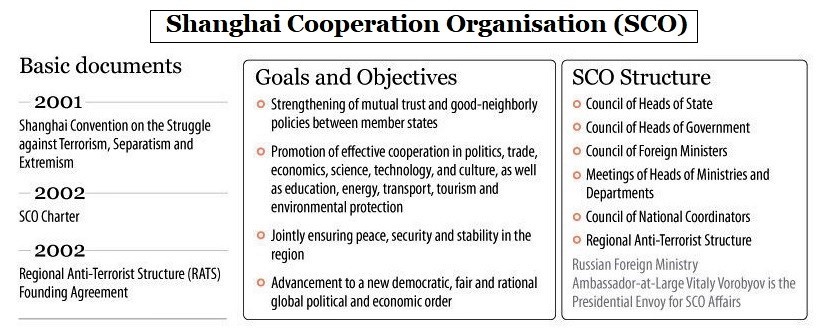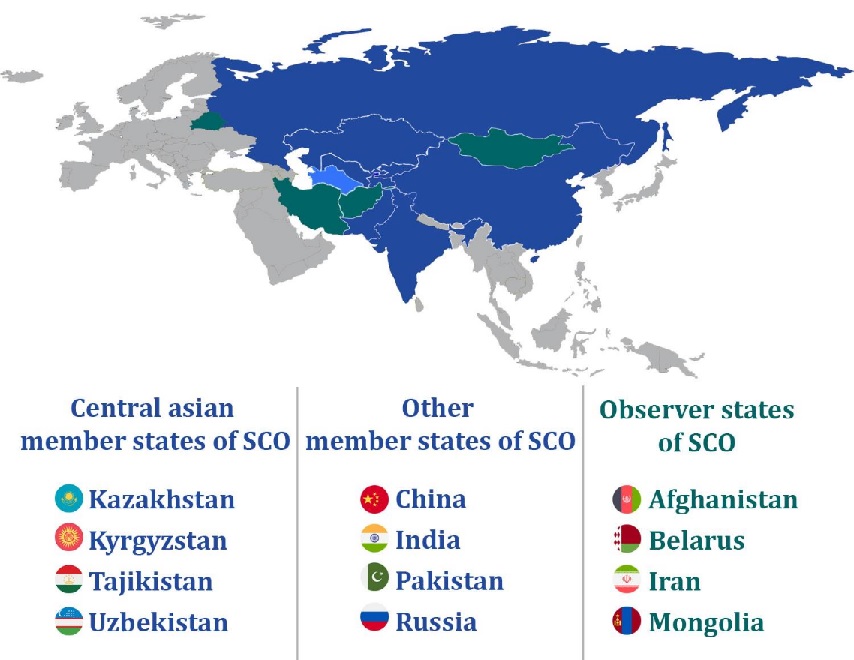7667766266
enquiry@shankarias.in
Why in news?
Prime Minister Narendra Modi walked a fine line in Samarkand, Uzbekistan during the Shanghai Cooperation Organisation (SCO) summit, given the current global stand-off between the West and Russia.
Uzbekistan is the current chair of SCO 2022 whereas India will be the next chair of the SCO in 2023.


References